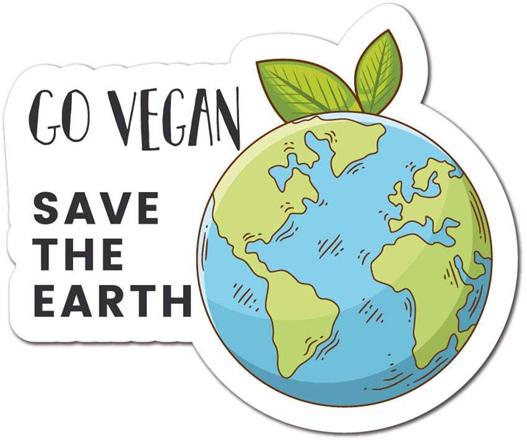- Mix
- Sun-2021-05-30 | 02:22 pm

Nayrouz News Agency :
Science and art collide in a new British exhibition which opened on Friday and hopes to raise awareness about the environmental impact of eating meat, while promising a guilt-free look at the "difficult problem”.
"Globally we eat too much meat, and we need to reduce it,” said Kelly Richards, exhibition officer at Oxford University’s Natural History Museum.
"It’s a very nuanced, very difficult kind of problem to unpick,” she told AFP.
Rather than imposing dogma, she hopes the "Meat The Future” exhibition will "give people the information that allows them to make up their own mind about the kind of future that they want”.
The show uses interactive installations, a virtual supermarket, fake shelves and works from artists including Damien Hirst to highlight the environmental costs of meat consumption, which has tripled worldwide in 50 years.
Visitors are met at the entrance by piles of fake burgers on a gingham tablecloth, each pile representing the average daily amount of meat eaten in different countries.
Britons eat on average 223 grammes of meat per day, a figure that is "a lot more than the global average”, and is "much above the recommended amounts”, said John Lynch, a physicist specialising in the environmental impact of agriculture.
Highlighting the urgency of cutting emissions in order to meet global targets for limiting warming, he said: "We probably need to do as much as possible on agriculture.”
The sector’s emissions, he estimated, would be halved if everyone became "flexitarian” — where people still eat meat, but only rarely.
Environmental score
Which type of meat is most polluting and in what way? What are the health risks and benefits of eating meat?
These are the questions that 10 University of Oxford researchers have tried to answer in a mathematical but playful attempt to nudge visitors towards a more responsible diet.
The show examines how supermarkets and restaurants "can influence our choices... and we talk about the kind of tools that we can use to fight back a little bit”, said Richards, in front of fake refrigerated shelves filled with ready meals.
Visitors can also take a virtual shopping trip, with 10,000 products on offer that all come with a score evaluating their ecological impact.
The "environmental score” takes into account water pollution, impact on biodiversity and the CO2 emissions produced in its manufacture.
"If you go into a supermarket, you often don’t see that information,” Lynch said.
"So one of the parts of the research project is looking at different labelling schemes, so you might have a environmental score or a ranking... for your food product.”
The museum incorporates the ideas in its cafe where red and processed meats are off the menu, which boasts around 50 per cent vegan dishes.
Insects for dinner
The exhibition also examines the advantages and disadvantages of meat substitutes.
Under the microscope are vegetable alternatives, such as soy steaks, tempeh and tofu, as well as grilled worm aperitifs and cricket flour.
While insects are not generally to European tastes, "I think we will see more insect consumption as it becomes more available and people have more awareness of it,” predicted Lynch, praising their environmental credentials and nutrition.
Vegetable alternatives are often criticised for their own environmental cost, but "even though some of them do require more processing, for most of the alternatives out there, they’re still much more efficient than actually eating the meat”, Lynch added.
An even more radical solution is to eat meat created in a laboratory from animal cells.
The emerging technology, which researchers have been working on for 10 years, was road-tested for the first time in a Singapore restaurant in January.
It would be expected to drastically reduce CO2 emissions, but "we still need data to confirm it”, said Lynch, who pointed to the energy consumption of the labs.
But convincing the public to switch to test-tube meat could be a tough task.
"Some people are probably just not going to be interested,” said Lynch.
Instead, he suggested that "if some people go vegan and some people just reduce their meat... , we’re still going to hopefully keep to the kind of sustainable limits of the planet”.










